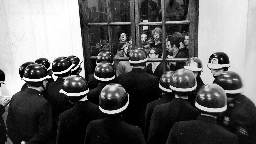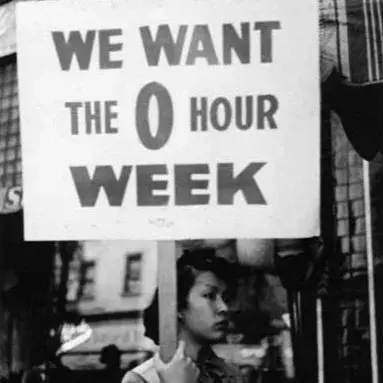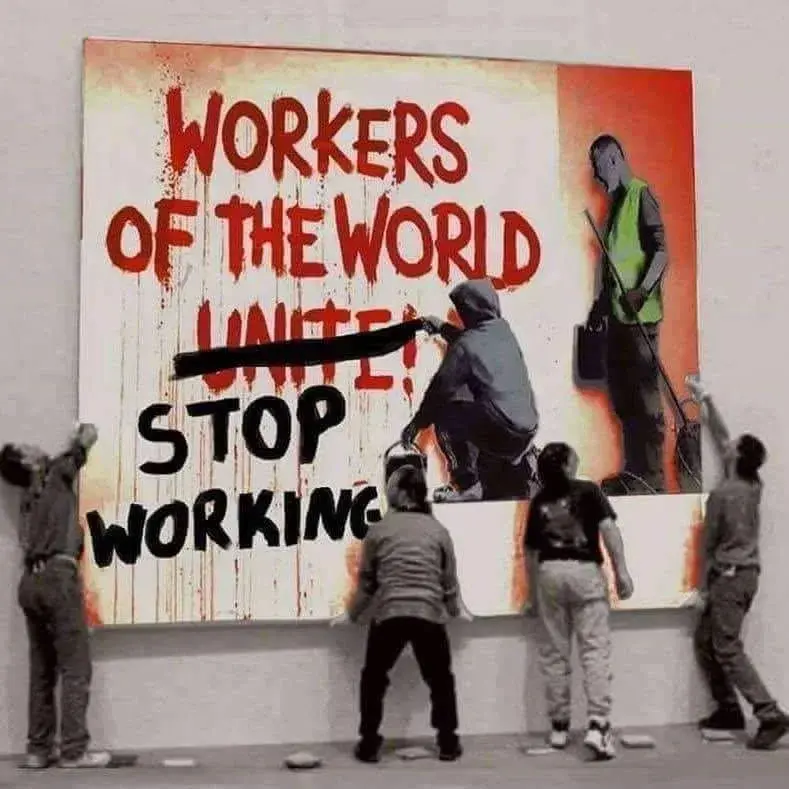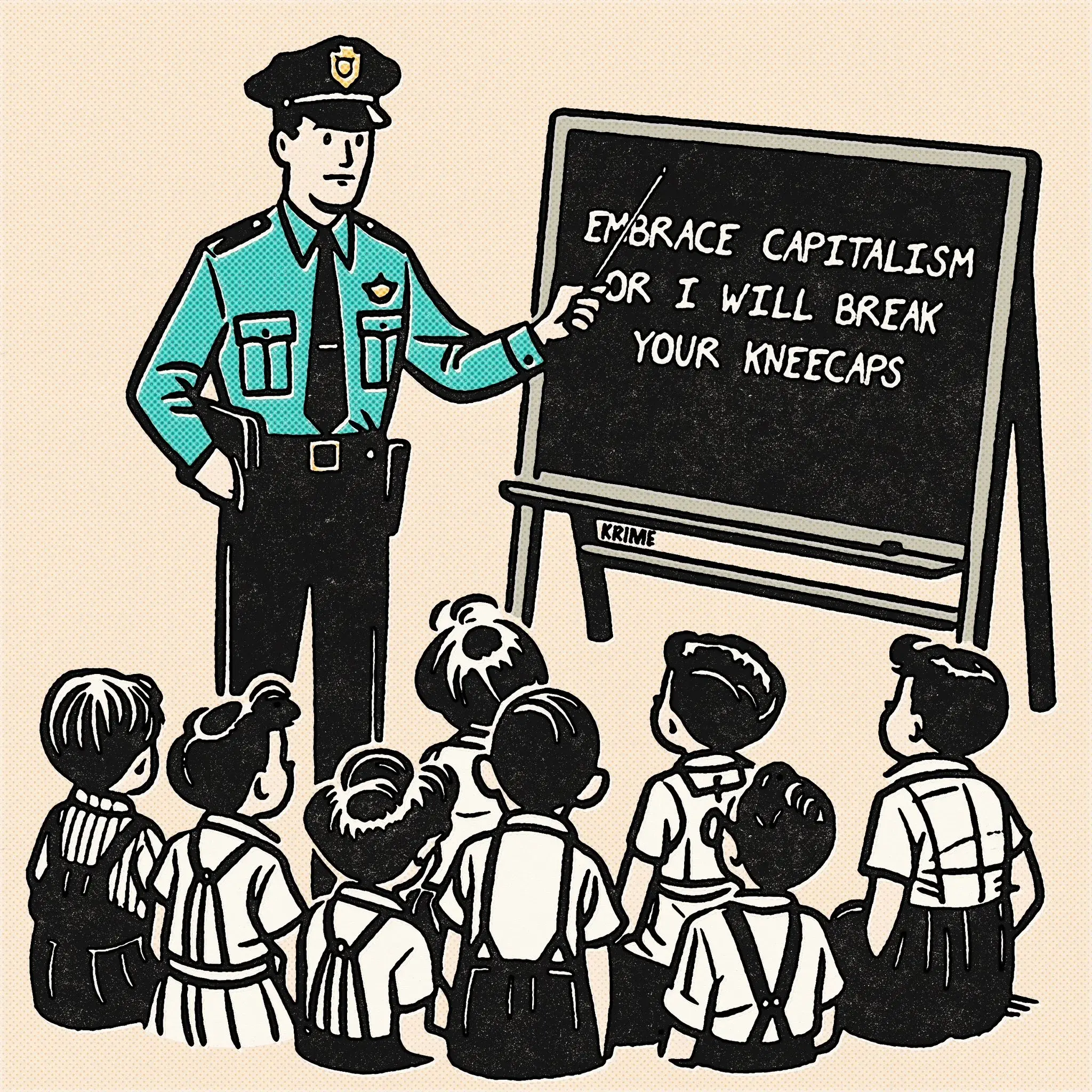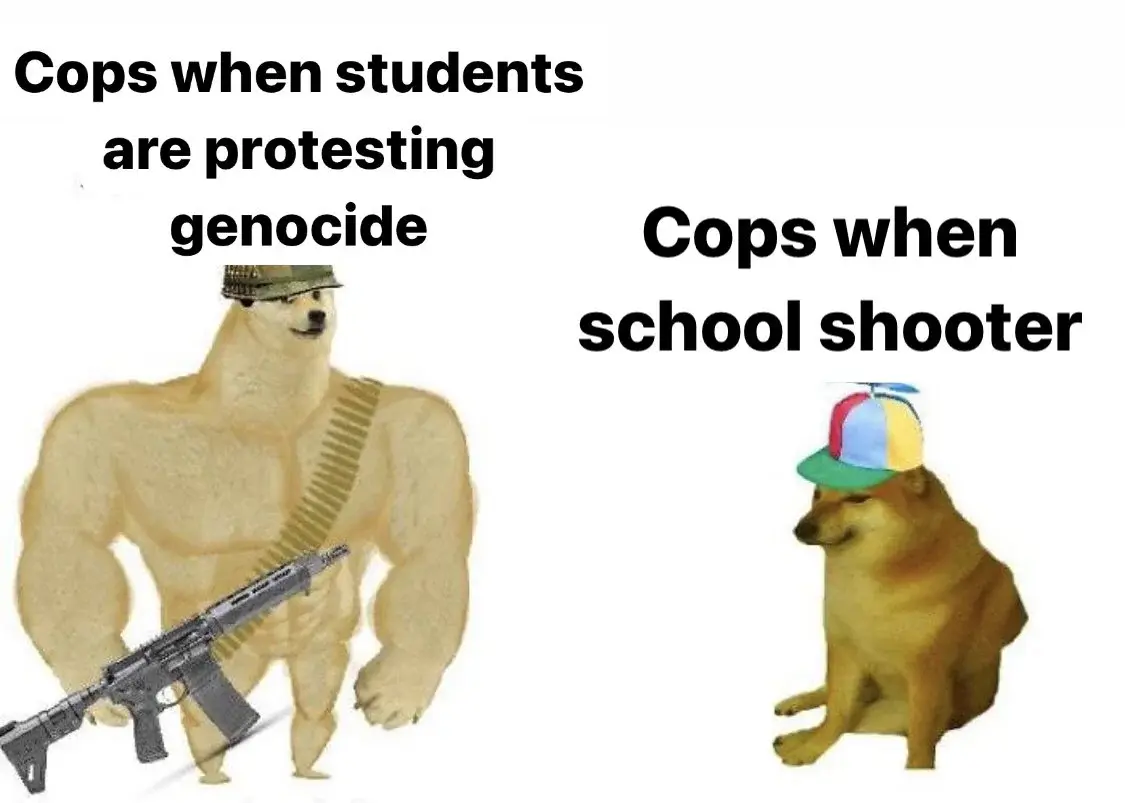Cooperation Jackson: History, Theory, Praxis – Utopia 13/13
> Since 2014, West Jackson has been the home of a remarkable and inspiring project to build a solidarity economy, economic democracy, and Black self-determination called “Cooperation Jackson.” Co-founded and co-directed by the brilliant and charismatic Kali Akuno—who joins us for Utopia 2/13—Cooperation Jackson is a model of an alternative way of life that has already spawned other projects coast to coast, from Cooperation Vermont to Cooperation Humboldt in California. > > What makes Cooperation Jackson such an important case study of concrete utopia is that it is so richly three-dimensional—along the axes of history, theory, and practice.
The term "degrowth" as political suicide?
I am a degrowther, but people keep telling me it's hard to create media communications campaigns for degrowth and that advocating for it is "political suicide." As if endless cancerous growth isn't political suicide already. I'm told people want growth and we should use a different name for degrowth and that we should make it palatable to the public. But degrowth is quite literally a critique of growth. Without this critique, it's just liberal wishywashing for a better future. So I'm at an impasse here. How do we talk about meaningfully talk about degrowth without watering down the message?
Oh that's interesting. I noticed the mold as well when I leave it out. Could I grow mushrooms on it?
Alright, I'll find a way to compost them
Hmm but there was a visible chemical reaction when I mixed the coffee grounds and the baking soda, and when water was added it bubbled up. But thanks I'll look up composting coffee grounds
How do I neutralize the acidity of used coffee grounds for use as fertilizer?
I've recently tried mixing the used coffee grounds in baking soda, and I'm seeing a very visible chemical reaction. I haven't tried putting it in the ground yet though.
Was the name “Free Territory” something used by contemporaries of anarchist leader Nestor Makhno, or a modern fabrication? In the spirit of debunking widespread myths and misconceptions in anarchist history, a Wikipedian uncovers the secret history of the making of the “Free Territory.”
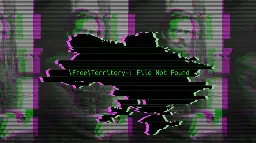
>...other users had questioned whether the term 'Free Territory' had any basis in reliable sources. I was a little surprised. This was the term that I had used for years, one that was inextricably linked in my mind with the Makhnovists. This could not just be some random neologism coined by Wikipedia… right? > >At first I could not let myself believe it. I looked through Makhno’s memoirs, as well as Volin’s and Arshinov’s histories, but I could not find the term anywhere. I even checked the Russian language originals, and peered through Viktor Bilash’s memoirs, which tragically remains untranslated. Again, I found no sign of a 'Free Territory'. I could not even find it in the memoirs of Victor Serge, the Bolshevik politician who coined the term 'Black Army' to refer to the Makhnovist insurgents.
I think you're fundamentally misunderstanding that social relationships to harm are fundamentally changed under conditions of anarchy. I apologize for the misunderstanding as writing on obscure forums doesn't exactly encourage me to write with vigor.
Of course there would be a plurality of violence under conditions of anarchy, but this does not fundamentally mean the rule of vigilantism. Right now, people have been dealing with harm without the state for generations. These are found in criminalized communities like Black and Indigenous people, people who use drugs, people who engage in sex work, etc. These people develop mechanisms by which to deal with harm without the state and oftentimes without engaging in vigilantism. For these people, vigilantism is not a court of first resort but a last resort. Vigilantism puts a target on their back from the state. Instead, they talk it out, develop safety plans, plan boycotts and bans, etc.
Rather than thinking of justice in anarchic terms as vigilantism, think of it in terms of people dealing with harm and conflict in healthy ways.
Historically, the errors committed by a truly revolutionary movement are infinitely more fruitful than the infallibility of the cleverest Central Committee.
From Organizational Questions of the Russian Social Democracy by Rosa Luxemburg
Resisting Evictions of the Urban Poor: A Resource for Housing Rights Advocates
Inklusibo's new manual on housing rights provides an in-depth narrative of the urban poor's right to housing and livable spaces. This is the first free publication under the Housing and Living Spaces category. Written by Rafael Dimalanta, Wina Beltran, Kristine Telen Download here
> Inklusibo’s new manual on housing rights provides an in-depth narrative of the urban poor’s right to housing and livable spaces. This is the first free publication under the Housing and Living Spaces category.
First We Take Columbia: Lessons from the April 1968 occupations movement
> I. Occupations are effective because they are disruptive. The April 1968 occupations shut down the entire university for over a week. This forced the administration to concede to their demands, even after the movement faced repression. > >II. An occupation needs to spread in order to survive. New buildings need to be taken on campus, throughout the city, and across the country. Take the enemy by surprise. Strive for daily or even hourly successes, however small. At all costs, retain superior morale. > > III. Every occupation is a commune. By shutting down the normal flows of capitalist society, they open up space for something new to emerge. These become a place to experiment with how we might live differently. Share everything. Inside the occupation, there is no private property. Break down barriers. Inside, social status and jobs are meaningless.
The reason why it is called antiwork is because the goal of the socialist movement from 200 years ago is the self-abolition of the working class through self-liberation. Antiwork means workers against their own workerness, "anti-workerness" if you will, hence "antiwork." And what does anti-workerness mean? It means workers against wage-labor, division of labor, alienation, et cetera. Hence antiwork is a shorthand for anti-workerness and all that that implies.
The Fate of Composition
> Communism seems a dim prospect today. The concept of surplus humanity has achieved a dreadful clarity in the present assault on Gaza. Yet, despite becoming a flashpoint for unprecedented waves of global solidarity actions, the situation in Gaza reveals not the unification of revolutionary activity, but its necessarily fragmented character. On many other shores, the popular blockade has returned in the form of protests by small farmers who seek to defend their livelihoods (and property) against the diminishing possibilities of social reproduction. This is in part conditioned by realities of climate change, and in part conditioned by state planning for a “green transition.”1 Ecological crisis is a harbinger of reaction and social disaster, rather than a unifying force of social upheaval.2 In the United States, in the long retreat from the George Floyd Rebellion, new ostensible unities present themselves in contestations over the future of humanity, over competing visions of crisis and disaster response that are entirely incompatible. The paradigmatic case remains the struggle to Stop Cop City (SCC) and Defend the Atlanta Forest (DFA). This is not simply because so many continue to constantly assert its paradigmatic status, but because it has become a real representation of strategic possibilities and outcomes in our era of uncertainty and utter bewilderment. This seems an unfair burden, given the rather specific character and conditions from which the initial movement spread. But as plans for “cop cities” are supposedly cropping up everywhere,3 and with them organizational forms that must confront the inheritance of SCC/DFA and its strategic offerings, it seems prescient to review the core elements, concepts, and presuppositions that have percolated through the messiness of struggle, repression, and polemics. To this end, we must abstract from SCC/DFA proper to examine what we believe has become the organizing principle of many “non-movements” today, particularly in periods of general reaction and degeneration: the problem of composition.
During the Ukrainian Revolution, there were all sorts of gangs that emerged that killed Jews and stuff. What did anarchists do? They killed those pogromists in turn. Under conditions of anarchy, there is no state that has a monopoly on the legitimate use of violence to punish those who break the "social contract." Rather, there is a plurality of violence that various groups can inflict on offenders. If you fuck around, you will find out.
Is this a violent sort of life? Not really. It's not as if Indigenous or pre-state peoples live in violence all the time. Sure, violence did happen, so what?, violence happens all the time under state societies too. The difference is that without a state, people cannot call on a higher power to coerce so they have to rely on each other to keep each other safe. Besides, the people doing the raping, stealing, and killing in state societies are precisely the people protected by privilege and the state. Under conditions of anarchy, such privileges mean very little.
Anthropology has a lot to teach us on how people dealt with such large-scale endeavors without the state. If there's conflict, they find a mediator or perhaps hold a meeting between the two groups to hash these things out. Sometimes, two groups would go to war. But anarchy is not merely statelessness, it means a society of consent and collaboration without hierarchy. Previous forms of statelessness may see peoples going to war or exert hierarchy with one another over any sort of disagreement or conflict, but anarchy means means a commitment to figuring out how to settle conflict and disagreements without hierarchy. So yes, anthropology has a lot to teach us on how people dealt with conflict in healthy ways. Sometimes they'd settle conflict in violent ways, but our purpose is to learn from these and do better.
tl;d: how is this done? talk to each other and learn from how people mediated conflict without states.
If you ask me, I'm an anarchist and communist, so I'd advocate for building workers' power in a struggle against their workerness. In prerevolutionary situations, that means building capacities of workers to struggle on their own behalf. This means strikes, occupations, sabotage, etc. In a revolutionary situation, these capacities transforms into crisis activity that has the capacity to transform social life and abolish work. In such a revolutionary situation, people take over their workplace, and resumes activity under their own control and willpower. In such cases, production is radically transformed into meeting needs rather than profit. Without the profit motive, people don't need to produce as much and various forms of alienations and divisions can be overcome.
There's no one method. A lot of people, however, choose various syndicalist and unionist methods of organizing workers to fight back against the bosses. You'll get a lot of different answers from different people.
Maybe they won't and for a time they'll live in their filth and starve. But who wants to live like that? Since time immemorial people have been finding ways to feed and clean themselves and others without notions of profit, wages, division of labor, mute compulsion of work or starve, etc. People have figured this out before and we can do so again.
Surely you clean your own house and stock your own food, if not cook it yourself? The same compulsion that drives one to clean their own homes and feed themselves will continue to exist on a societal scale even after work has been abolished.
Antiwork does not mean unpleasant tasks will disappear, rather that these will vs collectively managed in a way to maximize leisure. In the book The Dispossessed by Ursula K. Le Guin, a book that has a lot of antiwork themes, people take turns cleaning and dedicate 1 day out of 10 to take their turn doing chores in their community. Every other day they're free to self-actualize in whatever way they see fit. There are some parts of the book that isn't antiwork, like a machine that sometimes assigns people to only manual labor when they'd rather write, but generally the book isn't a model for antiwork and that plot point was part of the central drama of the text.
What if people refuse to help clean or take turns doing unpleasant jobs if they are able, however minimized it has been made? In the The Dispossessed, this is mentioned. In the book, those people are treated differently, and people regard them less. Think of it if you had a roommate who is a slob. You'd be contemptuous of them. But who wants to be held in contempt? People want to be liked. The cost of these tasks is no longer “work or starve” but “help out or you'll be disliked.”
There will be other ways to persuade. I cannot recount them all. And if they persist? Let them. It is better that a few freeloaders live than everyone live under a regime of work.
What's disturbing is that Fredy Perlman wrote that decades ago.
You know the meme where in this society it's like “oh no! A robot took my job! I'll starve!” Under conditions wherein work as we know it is abolished, it is instead, “a robot took my job, I'm free to enjoy what I want to do!” Of course there will be people taking care of automotive tasks, but again, this kind of labor is vastly different in a world without wages, alienation, division, et cetera. People enjoy making robots and making automation. It's like a game or a challenge to them. So it can be after work is abolished.
Happy May Day!

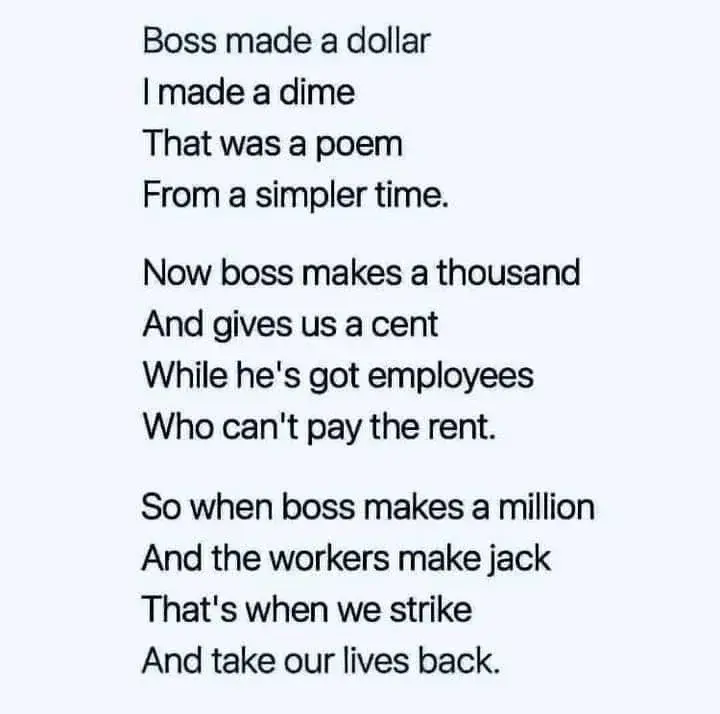
Alt text:
Boss made a dollar I made a dime that was a poem from a simpler time
Now the boss makes a thousand and gives us a cent while hes got employees who cant pay rent
So when boss makes a million nd the workers make jack thats when we strike and take our lives back
Some clarifications on antiwork
<sarcasm>Yes, it's true: before work was invented everyone lived in their own filth and starved all the time because work hadn't been invented yet. </sarcasm>
Beyond jokes, my intention here is to clarify what is meant by antiwork. Antiwork does not mean that a world that has abolished work would see people live in filth and starve. In a world that has abolished work, people will still farm, clean, teach, provide medicine, take out fires, et cetera. Antiwork means the revolutionary abolition of the world of work and all that entails: a waged-labor, a division of labor between waged work and house work, alienation, bullshit jobs, a division between leisure and waged work, compulsion to work or starve, et cetera. Some people call this degrowth, others communism, still others anarchy.
So:
What is work?
Work is a lot of things. For starters, it developed historically from feudal times and had since evolved in its current form in the capitalist mode of production. Within the context of the capitalist mode of production work is waged-labor or reproductive (or house) work and is defined by divisions and alienations. These include a division of labor between waged work and house work, alienation, a division between leisure and waged work, and a compulsion to work or starve. That last one is important. Working people today are free to not work, or starve. This is the freedom that work grants us.
Will people starve and live in filth?
No. Antiwork does not mean that a world that has abolished work would see people live in filth and starve. In a world that has abolished work, people will still farm, clean, teach, provide medicine, take out fires, et cetera.
Will people be bored without work?
I think it's more accurate to say people will be bored by work. A world that has abolished work will still see people that keep themselves busy. Historically speaking, during the Age of Enlightenment, it was the leisure class that didn't do work that was able to make all sorts of exciting and revolutionary ideas about science and art. They won the right to not work because they were privileged due to their wealth. If everyone was able to free themselves from the drudgery of work, what wonders could they achieve?
I expect this post to be a sort of living document. Please feel free to ask questions and I'll try to answer it in the post. ___
Liao demonstrates the need and utility of Asian anarchism, a new theoretical framework which will unite strands of Asian and Asian diasporic thought.
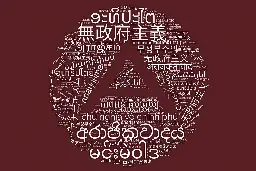
>Why is a theory of Asian anarchism necessary? The reasons that I believe it is important to create a theory of Asian anarchism can be boiled down to the following points. > >Firstly, the movements of anarchism that currently exist within Asian countries have historically been intertwined and transnational. This provides not only a pre-existing framework for a broad theory of all-encompassing Asian anarchism, but also has the potential to create stronger pan-Asian solidarity. > >Secondly, historical Asian anarchist movements had many unique successes and failures that differ from the anarchist movements in the West. Hence, a theory of Asian anarchism would have a new mode of analysis on organisational practices, past and current projects, potential paths forward, and fatal missteps. > >Thirdly, Asian philosophies such as Taoism and Buddhism have had a significant influence on all anarchists and have made major contributions to anarchist theory. Putting more emphasis and finding more philosophical precedents would surely recover old ideas and inspire new contributions to the body of anarchist theory. > >Fourthly, the unique experiences of Asian peoples as a result of colonialism and imperialism that they have been subjected to provide a unique outlook on these struggles. Rather than only opposing and pointing out the inherent evils such as capitalism and the State, Asian anarchism would draw from historical experience and lasting effects of Western colonialism such as British rule in India and China. > >Fifthly, as we advance into late-stage capitalism and are forced to live under neoliberal principles, many things that Asians hold valuable such as our cultures, the environment, and our social relations are being destroyed. By forming a theory of Asian anarchism through the lens of important values, we can effectively address the immiseration that Asian communities are dealing with.
Foucault on Marxism
Taken from Aragorn Eloff's Facebook:
>I'm busy reading Foucault's recently translated Japan Lectures and I've come across perhaps the most substantial articulation of his critique of Marxism in the 'Methodology for a Knowledge of the World: How to Get Rid of Marxism' chapter, which captures a conversation with the Japanese New Left philosopher Ryūmei Yoshimoto. Foucault, from the vantage point of 1978, makes some pretty damning and insightful observations that resonate with the popular image of him as a quasi-anarchist figure (indeed, many anarchists were making these critiques long before the 1970s). Reading stuff like this it's no surprise the orthodox Marxist left are so anxious to disparage him as some kind of counterrevolutionary, liberal reformist or even CIA stooge. > >Some excerpts: > >“[W]hen it comes to political imagination, we have to acknowledge that we are living in a very impoverished world. When we look for where this poverty of imagination on the socio-political level in the 20th century comes from, it seems to me, after all, that Marxism plays an important part. That’s why I discuss Marxism. So you can see that the theme “How to get rid of Marxism”, which serves in some sense as a connecting thread for the question you have asked me, is also fundamental for my thinking. One thing is certain: that Marxism has contributed and continues to contribute to this impoverishment of the political imagination. This is our starting point. > >“Marx is unquestionably a human being, a person who unerringly expressed certain things, in other words he is an undeniable being in terms of historical event… To transcend him would be as senseless as denying the Naval Battle of the Sea of Japan. The situation is totally different as far as Marxism is concerned. That’s because Marxism is the cause of the impoverishment, the desiccation of the political imagination that I was speaking about a moment ago. To really reflect on this, one must bear in mind that Marxism is nothing other than a mode of power, in an elementary sense. In other words, Marxism is a sum of power relations or a sum of mechanisms and dynamics of power. On this point we should analyze how Marxism functions in modern society. This is a necessary task, just as for past societies one analyzed the role played by scholastic philosophy or Confucianism. The difference being that in our case Marxism was not born of morals or a moral principle like scholastic philosophy or Confucianism. The case of Marxism is more complex, because it’s something that emerged, within rational thought, as a science. As for knowing what types of power relations a so-called “rational” society can assign to science, this cannot be reduced to the idea that science functions only as a sum of propositions taken for the truth. It is at the same time something intrinsically linked to a whole series of coercive propositions. Which is to say that Marxism as science—to the extent that it is a science of history, of the history of humanity—is a dynamic of coercive effects, concerning a certain truth. Its discourse is a prophetic science that diffuses a coercive force over a certain truth, not only in the direction of the past, but toward the future of humanity. In other words, what’s important is that historicity and the prophetic character function as coercive forces concerning truth. > >“…Marxism as scientific discourse, Marxism as prophesy, Marxism as State philosophy or class ideology—are inevitably intrinsically linked to the whole set of power relations. If the problem of knowing whether or not to get rid of Marxism is raised, is it not at the level of the power dynamic formed by these aspects of Marxism? Marxism, viewed from this perspective, is today going to be called into question. The problem is less about telling ourselves that it is necessary to free ourselves from this type of Marxism than of throwing off the dynamic of power relations linked to a Marxism that performs those particular functions. > >“…In defining the problem, an essential one for me, of how to move beyond Marxism, I have tried not to fall into the trap of traditional solutions. There are two traditional ways of confronting this problem. One is academic, the other is political. But whether it is from an academic or a political point of view, in France the problem unfolds broadly in the following way. Either one critiques the propositions of Marx himself, saying: “Marx puts forward such and such a proposition. It is true or not? Contradictory or not? Is it premonitory or not?” Or else one develops a critique of the following sort: “In what way does Marxism today betray what would have been reality for Marx?” I find both of these traditional critiques ineffective. In the final count they are points of view that are captive of what we can call the force of truth and its effects: what is true, and what is not true? In other words, the question “What is the true and authentic Marx?”, the kind of perspective that consists in wondering about the link between truth effects and the State philosophy that is Marxism, impoverishes our thought. > >“…It seems to me that what we find in Marx’s work is, in some sense, a play between the formation of a prophesy and the definition of a target. The socialist discourse of the epoch was made up of two concepts, but was unable to distinguish them sufficiently. On the one hand, a historical consciousness, or the consciousness of historical necessity, or at any rate the idea that in the future one thing or another prophetically must come to pass. On the other hand, a discourse of struggle—a discourse, we might say, that stems from the theory of will—the goal of which is to identify a target to attack… But the two discourses—the consciousness of historical necessity, or the prophetic aspect, and the goal of struggle—were unable to play out to the end. This can apply to the long-term prophesies. For example, the notion that the State will disappear is erroneous. As for me, I don’t think that what is happening concretely in socialist countries points towards the realization of this prophesy. But as soon as the disappearance of the State is defined as an objective, Marx’s words take on unprecedented reality. Undeniably, we are witnessing a hypertrophy of power or an excess of power in socialist countries as in capitalist countries. And I think that the reality of these mechanisms of power, which are of gigantic complexity, justifies, from the strategic viewpoint of a struggle of resistance, the disappearance of the State as an objective. > >“…the Party could always justify itself one way or another, as regards its activities, its decisions, and its role. Whatever the situation, the Party could invoke the theory of Marx as being the sole truth. Marx was the sole authority, and, because of this, it was considered that the activities of the Party had their rational basis in him. The multiple individual wills were consequently sucked up by the Party, and, in turn, the will of the Party disappeared behind the mask of a rational calculation consistent with theory passing for truth. Hence the different levels of will were bound to elude analysis. > >“…Since it was believed that the Party alone was the authentic owner of the struggle, and since this Party was a hierarchical organization capable of rational decision, those zones imbued with a somber madness, namely the dark side of human activity or the obscurely desolate zones—in spite of being the unavoidable lot of every struggle— had trouble emerging into broad daylight. Probably only works that are not theoretical, works that are literary, or perhaps Nietzsche, have spoken about it. It doesn’t seem relevant here to insist on the difference between literature and philosophy, but what is certain is that on the level of theory we have not managed to do justice to this somber and solitary aspect of struggle. For that very reason we must increase awareness of this inadequate aspect of theory. > >“We will have to tear down the idea that philosophy is the only normative thought. The voices of an incalculable number of speaking subjects must resonate, and we must allow an innumerable experience to speak. The speaking subject shouldn’t always be the same one. The normative words of philosophy should not be the only ones heard. We need to bring forth all sorts of experiences, lend our ear to aphasics, to the excluded, to the dying. Because we are on the outside; whereas they are the ones who confront the somber and solitary aspect of the struggles. I believe that the task of a practitioner of philosophy living in the West is to lend an ear to all these voices.”
Target is the only reasonable vote for climate!


Hillary did the meme "liberals would vote for Biden even if he drank the blood of an infant only because Trump drank the blood of 1.25 infants."

